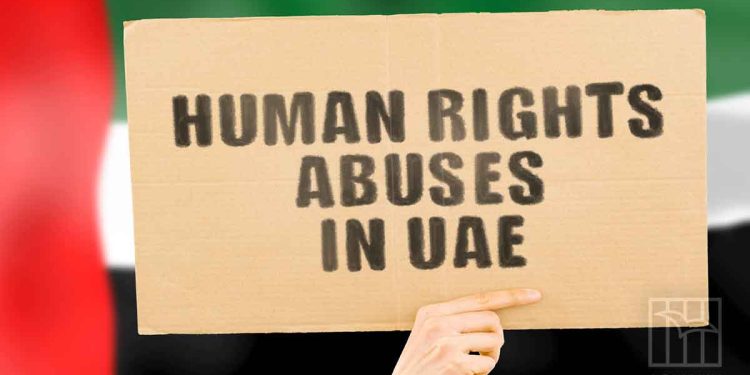Arab Organisation for Human Rights in the UK (AOHR UK) notes the litany of concerns raised by the Committee Against Torture (CAT), part of the Office of the High Commissioner for Human Rights (UN Human Rights), following the submission of the first report from the United Arab Emirates.
While CAT’s report on the submission briefly outlines areas in which the Gulf state has adapted in line with UN standards on human rights – such as its ratification of treaties relating to racism, sexism and child abuse – it raises numerous concerns over its use of torture, the death penalty, treatment of political prisoners and more.
Among its key concerns are:
The UAE definition of torture does not match that of CAT, which CAT has called on the state to rectify. Furthermore, it notes that torture is only “limited to public officials who use torture against an accused person, witness or expert”. This means that torture is not explicitly ruled out during “a state of war or a threat of war, internal political instability or any other public emergency”.
The punishment for torture is “discretional”, and “allows for terms of imprisonment ranging from three to 15 years”. In some cases, it is considered just a “misdemeanour”. This, the CAT response states, is “not commensurate with the gravity of the offence”. Additionally, the statute of limitations can expire in as little as five years.
The CAT report notes that “detainees often have difficulty gaining access to counsel, a doctor and family members or other persons of their choice” and that “detainees are deprived of their right to challenge the lawfulness of their detention, and to have their complaints promptly and impartially examined, especially when the offences for which they are detained involve political activities or state security”.
CAT also raises concerns over the number of reports detailing allegations of torture against suspects by law enforcement and security officials.
Particular concerns were raised over “a pattern of torture and ill-treatment against human rights defenders” and those accused of offences against state security, who have fewer legal rights.
Notably, CAT raised fears over numerous reports of torture or ill-treatment of people in reprisal for their cooperation with UN human rights bodies.
The UAE’s abuse of human rights and use of torture in Yemen were also raised as key concerns. CAT notes reports of “grave human rights violations” at the hands of UAE’s regular armed forces and groups acting in the interests of the state in detention centres based in Yemen. CAT also says it “regrets” the lack of information provided in this area by UAE.
CAT also raises concerns over reports suggesting that conditions in detention centres “may amount to cruel, inhuman or degrading treatment or punishment”.
The CAT document also raises serious concerns over redress and compensation for victims of torture, the role of the executive in influencing the judiciary and its use of the death penalty.
This damning response from CAT to the UAE submission, while cloaked in diplomatic language, lays bare the brutality of the regime.
CAT makes a series of demands on UAE to redress these areas of concern and to file a further report detailing its progress by 2026.
However, human rights defenders already know the reality of the regime, which has acted with near impunity thanks to its close relationship with world powers, most notably the United States.
While CAT’s exposé of widespread human rights abuses in the UAE will put some pressure on the regime, there is little in the way of sanction to prevent such abuses from continuing, especially with the timeframe involved.
AOHR UK calls on the international community to take immediate and decisive action to challenge the widespread abuse conducted by the UAE’s rulers.
The truth is now exposed for the world to see – what is now required is action.






























